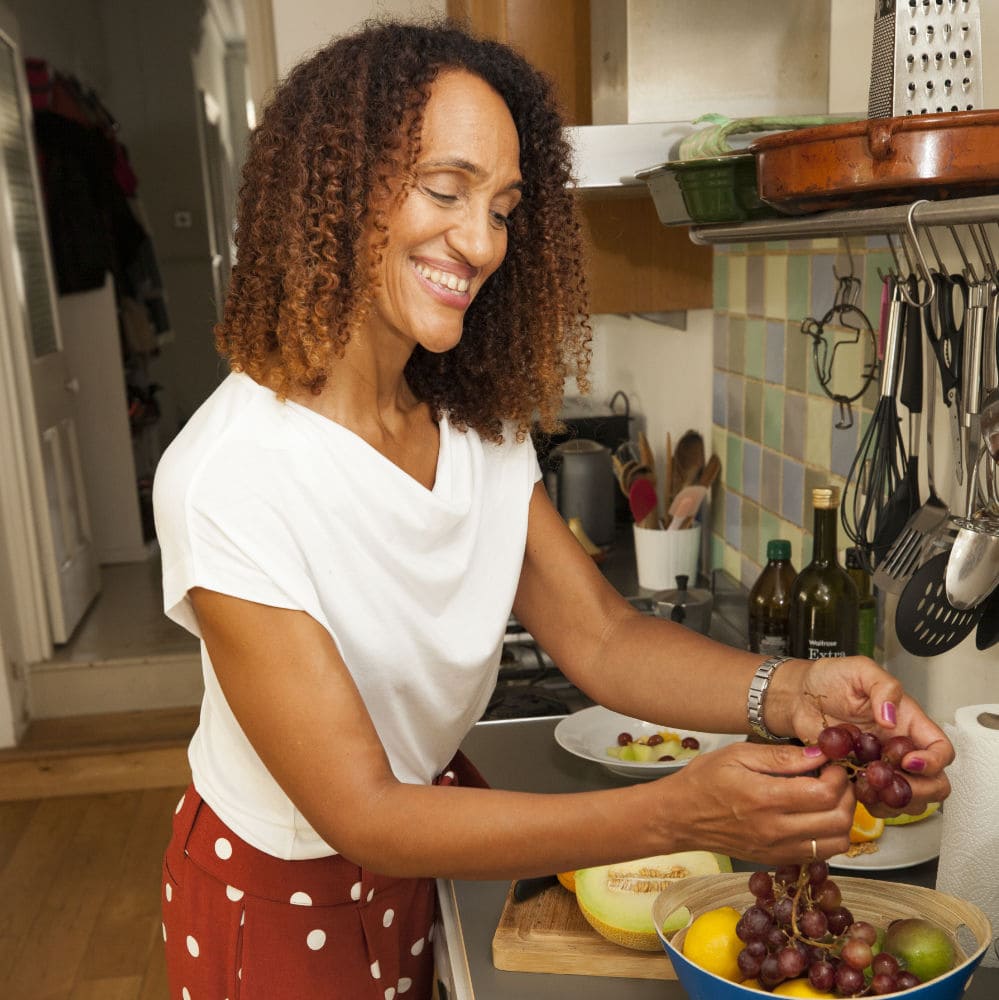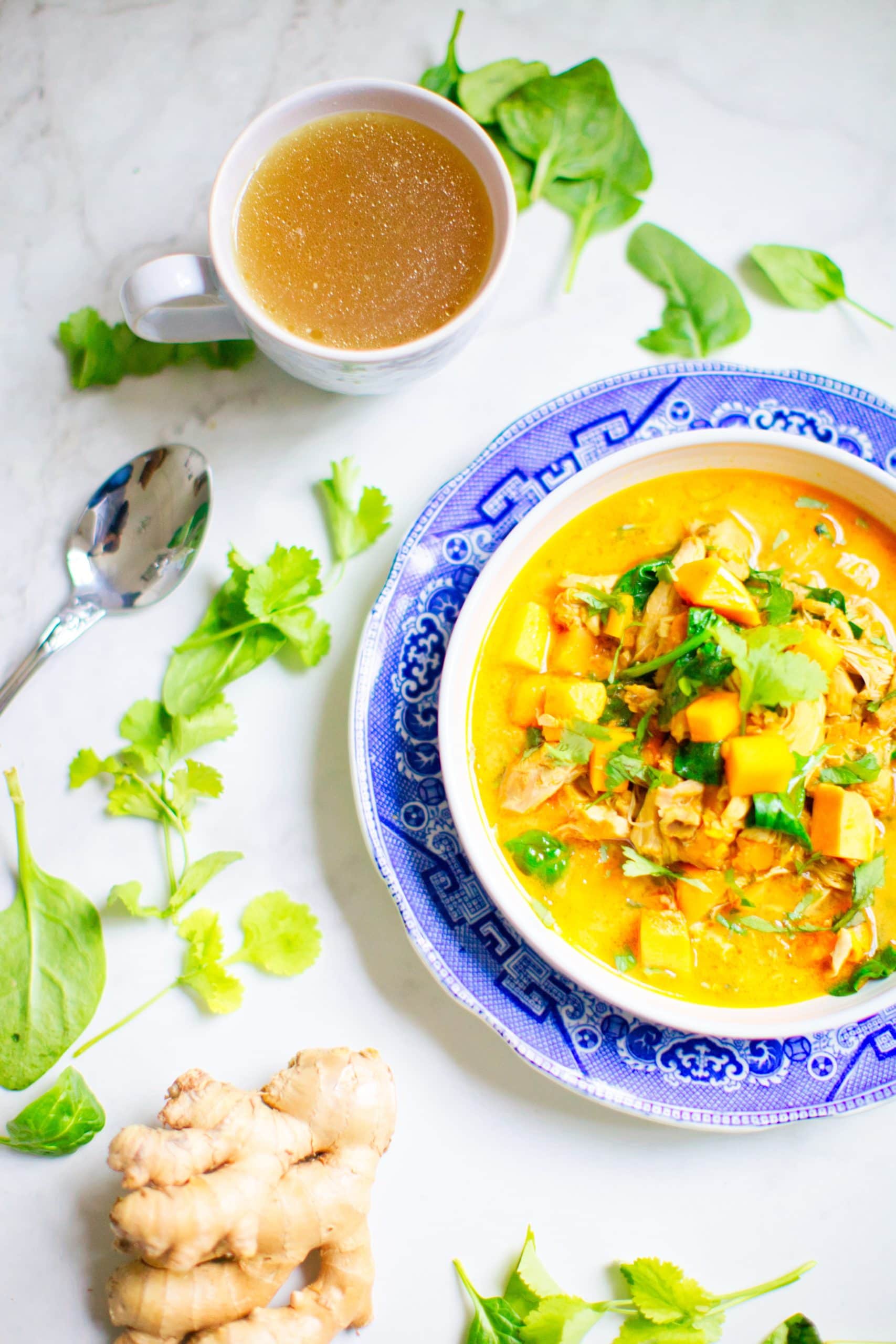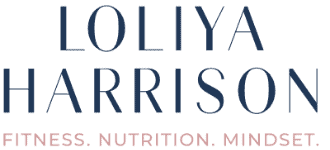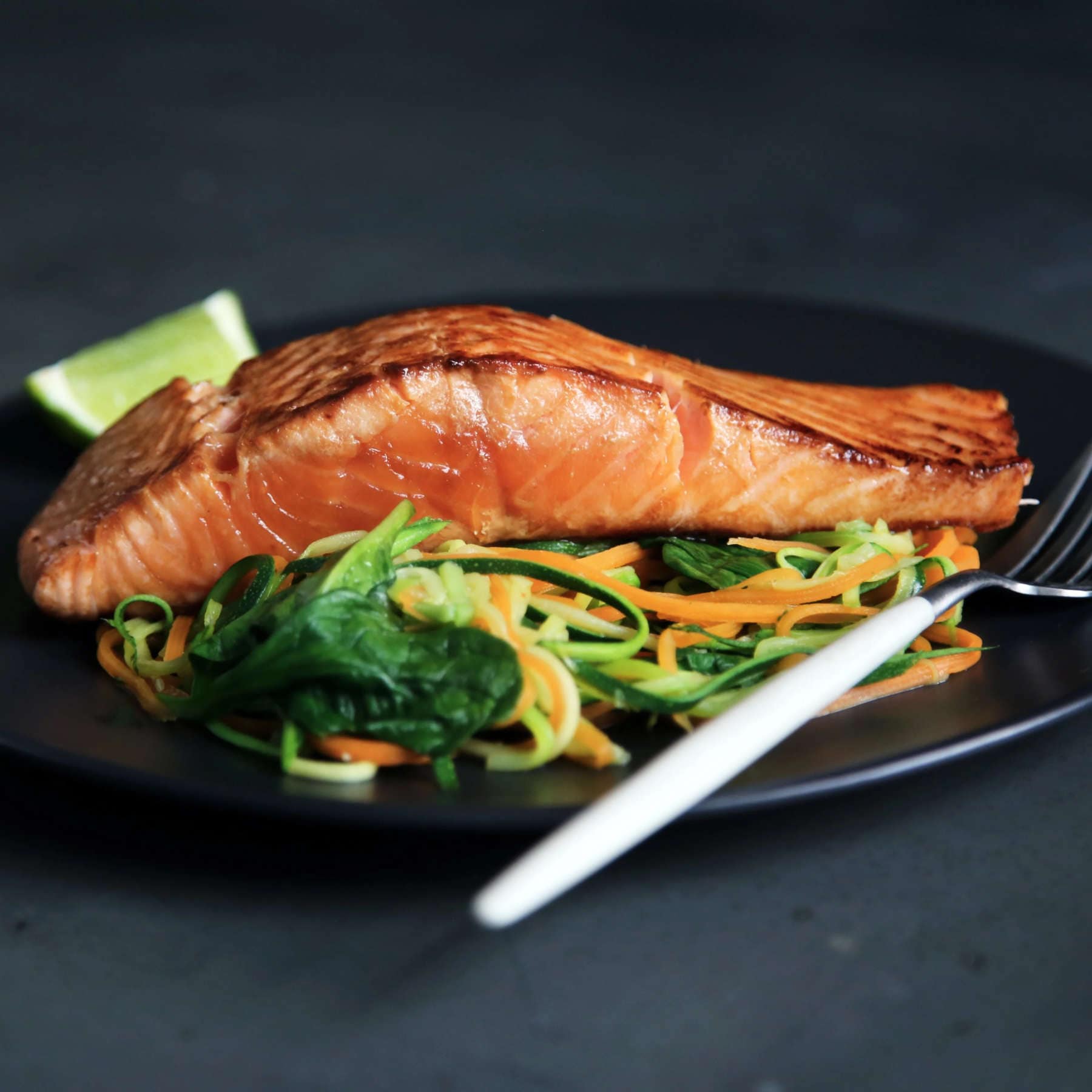With the news that Coronavirus is now a pandemic and as yet there is no cure, you might be feeling anxious about it all. Especially if you fall into the at risk category or someone close to you does. If you are unfortunate enough to fall ill, you may be wondering what you could eat to help your body recover.
If your mum was anything like mine, she probably fed you lots of chicken soup. Does that sound familiar? When we were ill my mum boiled up a chicken carcass and made chicken soup. Come to think of it, she also gave us high doses of vitamin C. She was ahead of her time! Why chicken soup? Probably because of the nutrients it contains. Below I have listed a number of nutrients and foods that have proven anti-viral activity and also nutrients to help support you if you are feeling anxious.

How can nutrition help when you have a viral infection?
Apart from avoiding processed, refined foods and sugar, there are a number of nutrients that are useful in the fight against viral infections.
Zinc – used by the body to produce white blood cells, which are a strong and effective army against viral attacks. Foods rich in zinc include oysters, red meat, chicken, chickpeas, lentils, tofu, nuts (especially cashews and almonds), hemp and pumpkin seeds, parmesan cheese, yoghurt, porridge. Zinc supplements are good but keep the daily dose to between 20mg – 40 mg of zinc, unless you are under the care of a medical practitioner. Above 40mg could lead to a copper imbalance, which can weaken your bones and cause neurological disorders.
Vitamin C – there is a lot of research to show that large amounts of vitamin C can be used to treat viral respiratory infections. Foods rich in vitamin C include broccoli, brussel sprouts, spinach, cabbage, leafy greens, cauliflower, cantaloupe melons, lemons, limes, orange juice (be careful you dont drink too much as this will increase your sugar load), papaya, red, green, yellow peppers, sweet potatoes, butternut squash, strawberries, tomatoes. You can take a supplement as well. I do. 3000mg per day is a good dose, split up eg 1000mg with breakfast, 1000mg with lunch and 1000mg with dinner. If you go above this dose you might find you get loose bowels.
Vitamin D – numerous studies have shown vitamin D to have anti-viral properties. Foods containing a lot of Vitamin D include oily fish (salmon, sardines, canned tuna), egg yolk, mushrooms. The best way to get Vitamin D is to sit in the sunlight and let your body make its own. If you are mildly ill, sitting out in the garden in sunshine for 30 mins exposing your arms and face is great. Not only will you make vitamin D but it will also lift your spirits and reduce stress. If you don’t have a garden, maybe your flat gets some sunshine in a particular place through the window. Can you open the window and sit in that place? Vitamin D3 supplements can be taken but be careful you don’t take too much. It is better to get your Vitamin D status tested before taking large doses. 500IU are a safe amount.
Vitamin A – well known for helping you to see in the dark! But this vitamin also has anti-inflammatory properties, repairs respiratory airway damage and plays a role in developing the immune system. Research has shown it to be very good at fighting infectious diseases. Good food sources of vitamin A include liver ( a much under eaten food these days), salmon, tuna, mackerel, goats cheese, butter, cheese (cheddar, camembert, roquefort), eggs, sweet potato, kale, carrots, butternut squash, spinach, red pepper. You can get vitamin A in a multivitamin – about 6000 iu per day is enough. If you are pregnant or a smoker get advise from a medical practitioner first before taking a supplement.
Selenium – this nutrient has anti-viral properties and people low in selenium have been shown to be more vulnerable to viral infections. Brazil nuts are very high in selenium. Other foods containing selenium include fish, chicken, pork, cottage cheese, eggs, sunflower seeds, porridge, yoghurt, lentils, cashew nuts. 100micrograms of selenium in supplement form can be taken too.
Probiotics – the gut microbes play a major part in protecting the body against infections by making sure the body’s defence systems switch on immediately when a virus enters the body. Probiotics contain these live microorganisms. Fermented foods like sauerkraut, kimchi, plain yoghurt, kefir, kombucha, tempeh, miso, pickled cucumbers are good sources. There are a lot of probiotic supplements on the market, any good health food shop can advise you. Another good supplement is Saccharomyces Boulardii. This is a yeast that has been well researched and supports the gut immune system.
Prebiotics – these provide food for your gut microbes, which keeps them alive and working optimally. Good sources of prebiotics are apples, berries, green tea, onions, grapes, olives, walnuts.
Olive oil – contains a compound called oleuropein that has anti-viral activity against respiratory diseases. So carry on eating salads with lots of cold pressed virgin olive oil and lemon dressing.
What nutrients can help support you through stress?
If you are unwell, it is likely you will be feeling anxious. Lifestyle behaviours, such as relaxation, breathing techniques (Buteyko, oxygen advantage), gentle yoga, meditation, sitting out in sunlight, are very good. Nutrition can also play an important role in supporting your body through stress.

B vitamins – in times of stress your body’s B vitamins will be depleted. These are needed for energy and to keep the many metabolic processes, including immune responses, in the body functioning optimally. So it is important to keep these vitamins topped up. B vitamins are found in leafy greens, bananas, nuts, seeds, meat, fish and dairy products.
Vitamin C – I’ve already talked about vitamin C being a great anti-viral nutrient in the section above. In times of stress, your adrenal glands, which produce your stress hormones and support you through stress, can get very depleted and stop functioning. Vitamin C supports your adrenal glands.
Magnesium – can help to relax muscles and reduce anxiety. It also works alongside the B vitamins to produce energy. Foods such as nuts, leafy greens, lentils, beans are all rich in magnesium. Magnesium is also effective at relaxing muscles when applied topically as a spray or in a warm relaxing bath. Sprinkle a cup of epsom salts in a bath and relax or 20 mins. If you have very senstive skin, this may cause irritation, be careful.
Omega 3 essential fats – stress causes a lot of inflammation and these fats can help reduce this. Good food sources are oily fish like sardines, mackerel, salmon, anchovies. Also seeds (especially flaxseed and chia seeds) and nuts like walnuts. Green leafy vegetables also contain omega 3 fats.
Curcumin – like omega 3, this nutrient has anti-inflammatory properties. The main source is turmeric, which is used as a seasoning in a lot of food. Turmeric is so versatile. I use it in soups, spread it over my chicken before roasting, add it to cauliflower rice or normal rice.
So what makes chicken soup so good when you are ill?

Chicken, a load of vegetables (carrots, onions, peppers), bone broth for the stock (can buy this but normal stock cube if you dont have bone broth), seasoning of salt, pepper, turmeric, served with a big handful of chopped basil, pumpkin seeds, chopped brazil nuts and a dollop of plain Greek yoghurt. This soup is packed with anti-viral nutrients. The warmth of the soup is also good for dislodging viruses from your mucus membranes and pushing them down to your stomach, where your stomach acid will finish them off.
If you are well whilst reading this, you may want to make some soup and freeze it or give it to someone who needs it now.
Disclaimer:This site offers health, fitness and nutritional information and is designed for educational purposes only. You should not rely on this information as a substitute for, nor does it replace professional medical advice, diagnosis, or treatment. If you have any concerns or questions about your health, you should always consult with a physician or other health-care professional. Do not disregard, avoid or delay obtaining medical or health-related advice from your health-care professional because of something you may have read on this site. The use of any information provided on this site is solely at your own risk.



0 Comments